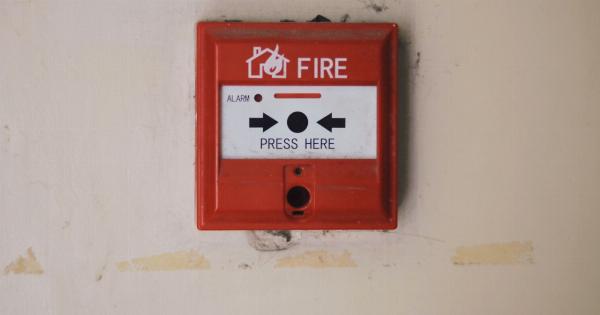Hypothermia is a condition where the body temperature drops below the normal range. It is a medical emergency, and if not treated promptly, it can lead to serious complications and death.
Hypothermia can occur when you are exposed to cold weather or due to prolonged exposure to water. It is important to know the signs of hypothermia and take quick action to prevent it from worsening. Here are some of the signs of hypothermia you need to know.
Signs of Mild Hypothermia
In the early stages of hypothermia, the body’s temperature drops slightly below the normal range (97.7-99.5°F or 36.5-37.5°C). Mild hypothermia can be treated with simple measures such as warming blankets or hot drinks.
Here are some of the signs of mild hypothermia:.
1. Shivering
Shivering is the body’s natural response to cold. It helps to generate heat by increasing the metabolic rate. Shivering is one of the first signs of hypothermia and can be an early warning sign.
2. Numbness or Tingling Sensation
Hypothermia can cause numbness or a tingling sensation in the fingers, toes, nose, or ears. This occurs due to decreased blood flow to these areas.
3. Pale Skin
When the body temperature drops, the blood vessels in the skin constrict to reduce the heat loss. This can cause the skin to become pale or bluish in color.
Signs of Severe Hypothermia
If left untreated, mild hypothermia can progress to severe hypothermia. Severe hypothermia is a medical emergency and requires immediate medical attention. Here are some of the signs of severe hypothermia:.
1. Confusion or Disorientation
As the body temperature drops further, the brain function can be affected, leading to confusion or disorientation. The person may not be able to speak clearly or may not understand what is happening around them.
2. Slurred Speech
Severe hypothermia can affect the person’s speech, making it difficult to understand what they are saying. The person may also have trouble coordinating their movements.
3. Slow or Shallow Breathing
Hypothermia can slow down the breathing rate, making it shallow or irregular. This can cause a decrease in the oxygen supply to the body’s organs, leading to further complications.
4. Loss of Consciousness
In severe cases of hypothermia, the person may lose consciousness. This means that they are no longer responsive and may not be able to breathe on their own. Immediate medical attention is required in such cases.
5. Weak or Absent Pulse
Hypothermia can cause a decrease in the heart rate, leading to a weak or absent pulse. This can be a sign of severe hypothermia and requires immediate medical attention.
Conclusion
Hypothermia can be a life-threatening condition, and it is important to know the signs and take quick action to prevent it from worsening. If you suspect that you or someone you know is experiencing hypothermia, seek immediate medical attention.
Remember that prevention is better than cure, and it is important to dress appropriately when you are exposed to cold weather or prolonged exposure to water.































